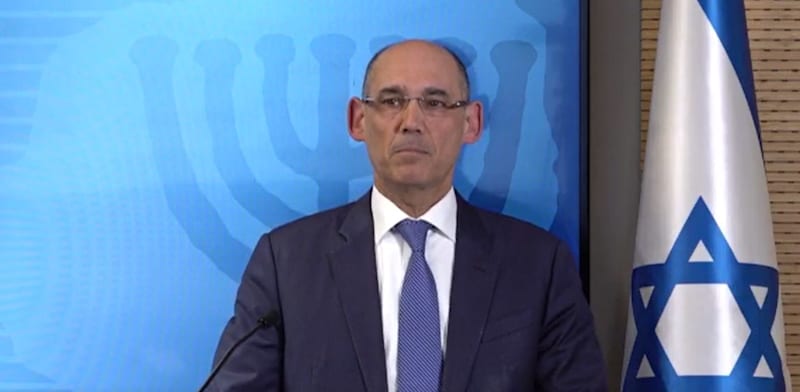Philippines Minister of Defense Gilbert Teodoro announced in parliament in Manilla yesterday that his county intended to cease buying arms from Israel. This followed political pressure on the government to halt deals with Israel because of the war in the Gaza Strip.
The Philippines is an important customer for Israeli defense companies. According to the Stockholm International Peace Research Institute, between 2019 and 2023, the country was second worldwide for arms purchases from Israel, accounting for 12% of the total. India was in first place, with 37%, while the US was third, with 8.7%.
“We have learned a lesson,” the minister said concerning the inability to withdraw from existing commitments, claiming that this was because of a lack of the required expertise in contract law. Yesterday’s discussion in parliament focused on a relatively small deal signed with Elbit Systems a month ago for the purchase of 155 mm shells to the tune of 250 million Philippine pesos for ATMOS howitzers procured a long time ago. This deal was concluded despite Teodoro’s declaration of the cessation of contracts. “It’s simply a continuation of existing contracts,” he said.
The step by the Philippines may reflect deep trends affecting Israeli defense exports in general. Figures from the International Defense Cooperation Directorate (SIBAT) in the Ministry of Defense show that while Israel’s defense exports reached a record $14.795 billion last year, 11.7% more than in 2023 and representing a doubling within five years, the proportion of sales to the Far East fell within a year from 48% to just 23%. Sales to Europe grew from 35% to 54%.
Teodoro said that the Philippines was not buying new systems from Israel, but only equipment for existing systems. “To acquire the same systems will require a substantial allocation from the modernization. So it was deemed wiser just to continue with the existing systems,” he said.
As part of its military modernization program, the Philippines navy upgraded its fleet through contracts with Israeli companies. Exactly a year ago, it received two FAIC fast attack craft from Israel Shipyards, carrying Rafael’s MLR-NLOS missile launcher and Spike NLOS electro-optic missiles. The Israeli-Philippines collaboration was part of Manilla’s Horizon 3 (2023-2028) program for modernizing its security forces. In the previous two programs, which included naval vessels, aircraft, and artillery, Israeli defense companies played a substantial part.
Teodoro admitted that his country’s military would continue to use the equipment purchased from Elbit Systems for another twenty years, but said that this contract would serve as a test case for the need to diversify the country’s supply chain. “It was a lesson learned for us also in who we contract with, how we contract with, and what we write down on a contract. So, right now, we’re in no position to decommission the capabilities, and because of the arrangement that was made before, which was probably good at the time, we’re now stuck with it,” he said.
Published by Globes, Israel business news – en.globes.co.il – on September 17, 2025.
© Copyright of Globes Publisher Itonut (1983) Ltd., 2025.























